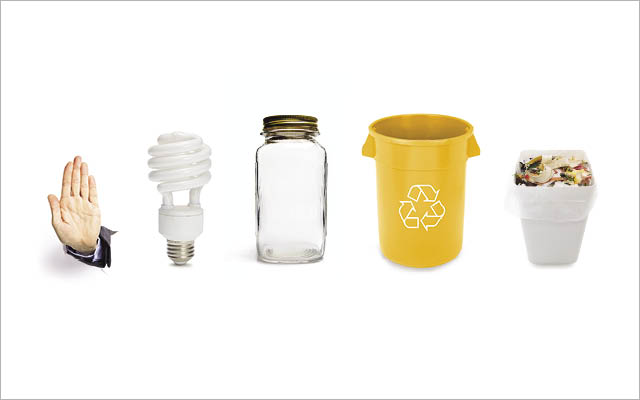Recess, be gone! That was the mandate from authorities in Tacoma, Wash., in the fall of 2005. “The interest we have is in maximizing instruction time,” stated a districtwide memo sent to elementary school principals. “Our mission is preparing young people to compete in the global society.”
Tacoma isn’t unique. During the past few years, nearly a fifth of American school districts have eliminated elementary school recess. Meanwhile, schools have been inviting junk-food vendors into their cafeterias and vending machines.
Advertisements on the wall of a Colorado Springs high school boast, “M&M’s are better than straight A’s” and “Satisfy Your Hunger for Higher Education With Snickers.”
Kids are trained in school to produce in the global marketplace and are treated as “consumers in training” outside of class. “Kids are the brightest stars in the consumer constellation,” says James McNeal, a marketing expert and author of Kids as Customers: A Handbook of Marketing to Children.
Children have more money than ever, and their influence on family purchases far exceeds their personal financial resources. Kids’ money and influence makes them targets for advertisers, who spend fantastic sums to get youngsters to buy, or at least to nag their parents to buy things for them.
Such consumption and the emphasis on “productivity” in the classroom is, arguably, perfect preparation for adult lives that will revolve around hard work and easy credit.
Shop ‘Til You Drop
Shortly after 9/11, our political leaders counseled Americans to go to the mall and shop. Earn more, spend more. Do your duty for the economy. Keep adding to the Gross Domestic Product; it’s the measurement of success in the “global society.”
But what if it’s killing us? Many doctors worry that the hypercompetitive, buy-work-buy treadmill that even our children are being trained on ought to carry a label – WARNING: This lifestyle may be hazardous to your health.
I began talking with doctors about this problem while coproducing the PBS documentary Affluenza (imagine little viruses that look remarkably like dollar signs) nearly eight years ago. My colleague and I were using the term “affluenza” in jest, considering it a catchy title for a film about conspicuous consumption in America. We thought of it more as a joke than a real disease.
In that spirit we asked Richard Swenson, MD, a former professor of medicine at the University of Wisconsin, whether affluenza was something he noticed in his patients. To our surprise, he answered seriously, “Affluenza is a major disease. There’s no question about it.”
Swenson has his own term for the affliction, which he says can easily be passed down from generation to generation. He calls it “possession overload.” Put simply, it’s the problem of dealing with too much stuff. “Possession overload is the kind of problem where you have so many things that you find your life is being taken up by maintaining and caring for things instead of people,” Swenson says.
Swenson, who lives in Menomonie, Wis., is a warm, deeply religious man who gave up medical practice to lecture to church groups, corporations and even the U.S. Department of Defense about the stress that our breathless, keep-up-with-the-Joneses lifestyle causes. He sees the symptoms all the time – “headaches, low-back pain, hyperacidity, palpitations in the heart, unexplained aches and pains and emotional problems like depression, anxiety, sleeplessness, driving too fast, drinking too much, screaming, being abusive. All these people have are stress, exhaustion and burnout. Their relationships are vaporizing.” None of this is a future we would wish on our kids. But if they regularly observe us living according to this overworking, overconsuming model, there’s a good chance they’ll follow suit.
Affluenza Lives On
The buy-work-buy cycle has only gotten worse since we produced Affluenza in 1997. Tempted by low interest rates and stores dazzlingly full of cheap products, Americans have spent their savings down to near-zero rates. With no savings, people feel more pressure to work longer and harder, but even when the longer workdays bring in bigger paychecks, that money, too, is lost to the cycle.
After the broadcast of Affluenza, other doctors confirmed that what we call the “all-consuming virus” is no laughing matter. One partner in a gastrointestinal clinic in Wenatchee, Wash., said that upward of 80 percent of the physical complaints his patients bring to him could be traced to the pursuit of upward mobility.
“Doctors have an average of just seven minutes per patient to make a diagnosis, and affluenza can be tough to diagnose in that short a time,” says Jeanne-Marie Maher, MD, an internist who directs the Sound Health Solutions weight-loss clinic in Seattle. “But, for a long time, it’s been clear to me that the success-driven lifestyle is a recipe for poor health,” she says. “Without a doubt, the majority of medical problems we see are because people don’t have time to take care of themselves. They’re trying so hard to get ahead. They have to have the mini-estate and send the kids to the best soccer camps. Their attachment to possessions is killing them.”
When I asked Maher for specific examples, she said there were so many cases she “couldn’t even boil it down to single anecdotes. I see it all the time – people wanting more things for themselves and not realizing what they’re doing to themselves in the process; people who are so stressed out, so busy being overachievers, they barely make time to exercise or spend time with their families, and their diets are terrible.”
When people get off the maximum-achiever-consumer treadmill, Maher says, they see improvements in more than their physical health. “Their mental health improves markedly as well. They reconnect with friends and with spiritual roots, volunteer more and watch less television. When they start to downsize and simplify, they always say, ‘Why didn’t I do this sooner?'”
The Stress of Success
One result of the stress of success is that American health is declining relative to that of other nations. Stephen Bezruchka, MD, who teaches at the University of Washington’s School of Public Health, tells me that although the longevity of Americans continues to increase, we’ve fallen behind our peers in terms of average years lived over the past few decades, from No. 13 in the world in 1960 to No. 27 in 2002, according to figures from the United Nations. Even people in poor countries like Costa Rica and Barbados outlive most Americans.
Blame our decline on “growing inequality and the constant struggle to keep up with the Joneses,” Bezruchka says. He suggests that good health is more likely to be found in more egalitarian communities, where conspicuous consumption is frowned on and relationships are more valued than stuff. He points to the “Roseto effect” (see sidebar), a medical finding that people in close-knit, cooperative communities live longer than those in individualistic, competitive ones.
There are signs of hope. This Christmas, I didn’t hear any news stories about shoppers stampeding to grab the last of a hot item. And a recent Center for a New American Dream poll found 48 percent of Americans saying they had cut back some on their spending during the past five years. But we still have a long way to go. And if we value our health – and our kids’ future – we’ve not much time to get there.
Eager to shield your family from the negative impacts of the consumer craze and spare them the stress of an overspent lifestyle?
Here are some tips for fighting off affluenza in your household:
- Practice safe shopping – Take a small envelope, the size of your credit card, and write questions on the outside like: Do I really need this? How much will I have to work to pay for it? Could I borrow this thing from a friend? Put your card in the envelope so whenever you pull it out of your wallet you’re protected against reckless spending.
- Avoid big-box stores if you can. If you’re not exposed to 15,000 products at “rock-bottom prices,” you’ll be less likely to buy on impulse.
- For gifts, try giving experiences like theater tickets rather than stuff. The recipient won’t have to store and maintain more “things,” and he or she will have the opportunity to share someone’s company and make memories instead.
- Turn off the TV and take a walk. Avoid catalogs and magazines that only make you want to buy things.
- Slow down and take stock of your life. Ask what really brings you joy and what you’ve come to take for granted.
- Play more to keep fit. Get outside with your loved ones. Romp. Explore. Enjoy more experiences that money can’t buy. And please, give the kids back their recess.
The Roseto Effect
Stewart Wolf, MD, began studying the tiny town of Roseto, Pa., in the 1950s because its residents were so healthy. He wondered why they hardly ever got heart attacks and lived so much longer than the people in neighboring towns. At first, he suspected diet. But no, the Rosetans ate lots of pastas and fat. In fact, they were so poor they used lard instead of olive oil. They didn’t really exercise more than people in the other towns either.
In time, Wolf came to a surprising conclusion. Rosetans regularly lived into their 80s because these poor immigrants, all from the same village in Italy, truly practiced community. They shared what they had, helped each other and frowned on conspicuous consumption – what they referred to as “putting on the dog.” Their close-knit families and friendships literally kept them healthy.
This finding, that strong human bonds are perhaps the leading predictor of good health, is now known as “the Roseto effect” in public-health circles.
But, sadly, the Roseto story has an unhappy ending. In the 1950s, Wolf began to worry that the next generation of Rosetans was adopting the keep-up-with-the-Joneses philosophy of neighboring towns. When he studied Roseto a generation later, the old intimate community had vanished, and so had its health advantage. These days, Rosetans don’t live any longer than anyone else.
This article originally appeared as “Achievement Overload” in the June 2005 issue of Experience Life.




This Post Has 0 Comments